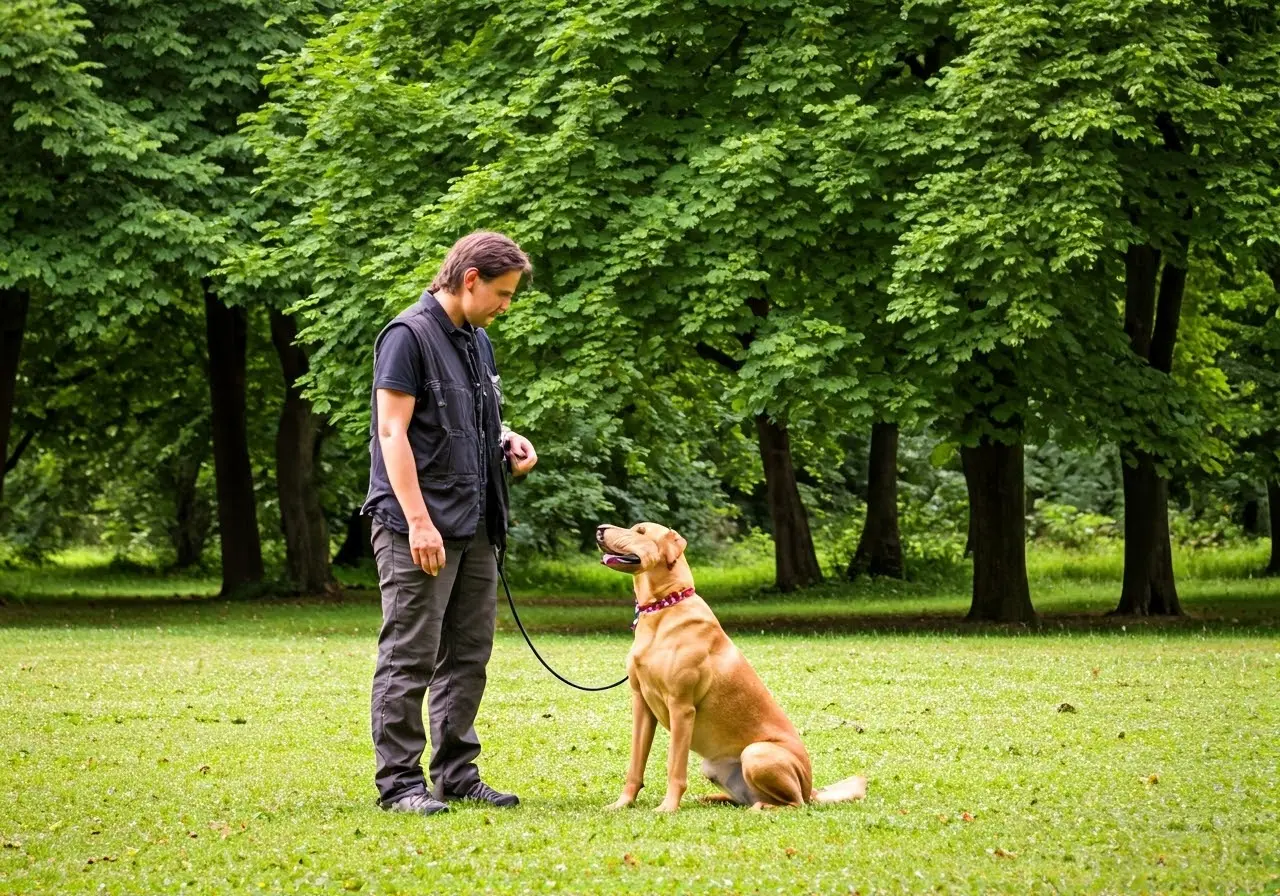When considering dog training options, it’s important to understand the differences between private sessions and group classes. Both methods have their own unique benefits and are suitable for different needs. Let’s explore the key differences to help you decide what’s best for you and your furry friend.
Understanding Private Dog Training
Private dog training sessions involve one-on-one interaction with a trainer, providing tailored instruction designed specifically for your dog. This approach offers a customizable and flexible way to address your dog’s unique needs. With focused attention, the trainer can hone in on specific behavioral issues or skills that need improvement and develop a plan that aligns with your goals.
A significant advantage of private training is the setting: it usually occurs in the dog’s natural environment. This allows for real-world applications of lessons, such as practicing commands in your home or local park, where distractions genuinely occur. This helps your dog learn to behave appropriately in contexts they’re familiar with and also aids you in managing your dog’s behavior in these specific settings.
This option can be particularly beneficial if your dog has specific behavioral issues not easily addressed in a group setting, such as anxiety or aggression. According to Private Dog Training Vs Group Classes, one of the core benefits of private sessions is that lessons can be tailored to address unique behavioral challenges your dog might face.
Exploring Group Classes
Group classes are structured environments where multiple dogs and their owners train together, offering socialization opportunities and peer learning. This format is ideal for teaching basic commands and manners, as well as for dogs who thrive on interaction with other dogs and people.
Dogs in group classes learn to react and respond amidst distractions, which can be an essential skill for their everyday lives. Engaging in group activities means that dogs must focus on their handler even with other dogs around, enhancing their ability to generalize behaviors across different environments.
Moreover, group classes are generally more cost-effective, making them accessible to a broader audience. The shared learning experience also builds a sense of community among pet owners, who can exchange tips and experiences, fostering a supportive network.
Benefits of Private Dog Training
In a private training setup, your dog receives all the attention, allowing for a rigorous focus on particular issues or commands. As needs arise, the trainer can adapt the training methods on the spot, ensuring the approach remains relevant to your dog’s development.
The bespoke nature of private sessions can be incredibly effective for improving specific behaviors, whether it’s working on leash manners, recall, or more advanced tricks. Personalization extends to scheduling as well; you can arrange sessions at mutually convenient times, offering ultimate flexibility to accommodate your life dynamics.
Private sessions also avoid the waiting time inherent in group classes, where different dogs learn at varied paces, making overall progress potentially slower. Here, learning is streamlined and directed towards achieving tangible outcomes faster.
Advantages of Group Classes
The community aspect of group classes cannot be underestimated. Not only do dogs get the opportunity to socialize, but owners also get to collaborate and connect. This shared environment can provide benefits beyond training, such as mutual support and encouragement.
An often-overlooked perk of group classes is that they instigate healthy competition and motivation among participants. Watching fellow classmates succeed can inspire owners to be persistent with their training efforts, leading to better outcomes.
Affordability is another factor in favor of group classes. With costs divided among participants, each owner pays less than they would for private sessions. If you’re working within a budget, this option offers comprehensive training without a hefty price tag.
Which Option is Best for Your Dog?
Consider your dog’s temperament, behavioral needs, and your personal training goals when choosing between private and group training. According to this guide, the alignment of training style with your dog’s personality is essential for success. Dogs with specific behavioral issues may benefit more from the individualized approach of private training.
Conversely, if your dog is friendly and energetic, group classes could provide both the structure they need and the socialization they enjoy. Remember also to weigh the time and monetary commitment of each option, along with how well they fit into your lifestyle.
Making the Right Choice for Your Dog
Choosing between private dog training and group classes depends largely on your personal preferences, your dog’s personality, and your specific goals. Both methods offer valuable training experiences, and the best choice is the one that meets the needs of both you and your dog. Need more help deciding? Visit Focused Dog Training and learn more about our programs.


